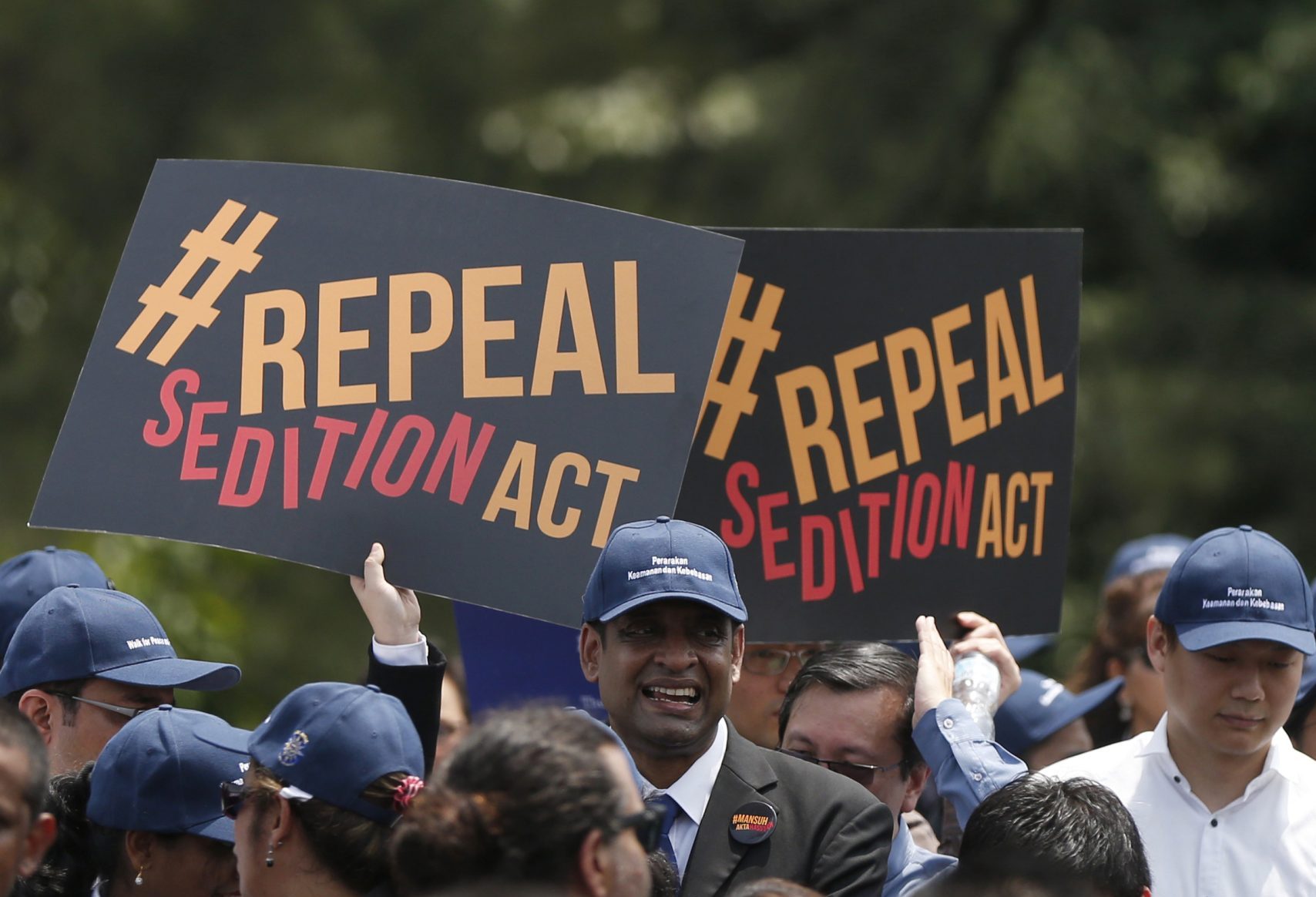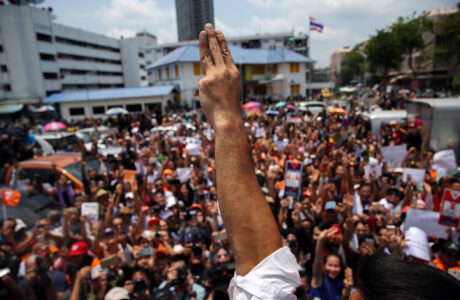Introduced in the sixteenth century in England specifically to suppress dissent, sedition laws spread through the British colonies. Now, TrialWatch is following the use of this law, with some jurisdictions having taken important steps to repeal or reform sedition laws, whereas in others, the law is being used as a key tool of repression.
In Asia, the dangers and opportunities for reform are shown in stark relief:
In Hong Kong, after over 50 years of disuse and a period when reform—or even repeal—seemed possible, the authorities have again begun to charge sedition.
In India, the same law used to put Gandhi behind bars has been deployed by the Modi Government against climate. activists, students and journalists: more than 7,000 individuals have been charged with sedition since Modi came to power. After the Indian Supreme Court put the law on hold, the Indian government has said they will replace it.
In Pakistan, the authorities have used sedition and related charges to stifle political activism, including on university campuses. Most recently, however, the courts have struck down the law.

In order to document this troubling trend and leverage positive momentum, TrialWatch monitors sedition cases across Asia, including:
In Thailand: Lawyers and protesters charged with sedition for criticism of the monarch; and members of an organization the authorities believe to be anti-monarchy.
In Pakistan: An academic charged with sedition for participation in protests
In India: TrialWatch monitored cases against journalists for tweeting about the January 2020 farmers protest in Delhi.
In Malaysia: Following a letter submitted by TrialWatch and our partners campaigning for a change in sedition laws in the country, the Malaysian Cabinet has since agreed to review and narrow the scope of their sedition law.



